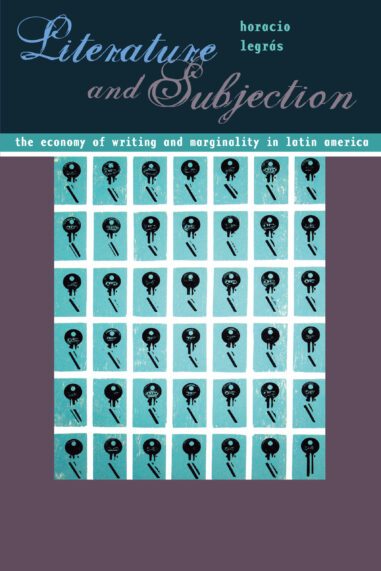

Hardcover $65.00
Request Exam or Desk Copy. Request Review Copy
Literature and Subjection
The Economy of Writing and Marginality in Latin America
Legras's Literature and Subjection offers excellent readings of both Latin American fiction and Western theory. He illustrates the particularity of the link between Latin American fiction and history, on the one hand, and between Latin American culture and modern European epistemology on the other. This combination of discourses represents a rare feat in the field of Latin American studies, and makes for an outstanding book.

